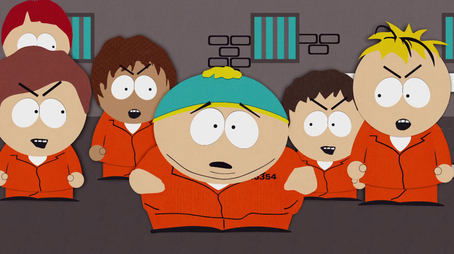
Sorry, we have not watched this yet.

The kids have just won a sledding race. Token says that the only reason they won is because of Eric's fat ass. The girls challenge the boys to a sledding race down Phil Collins Hill. Token says that the boys can't lose thanks to Eric's fat ass. Eric then tosses a rock into the side of Token's head. The FBI claim that this was a hate crime and Cartman is sent to jail. Can the other boys bust Cartman out in time for the big race?
Sorry, we have not watched this yet.